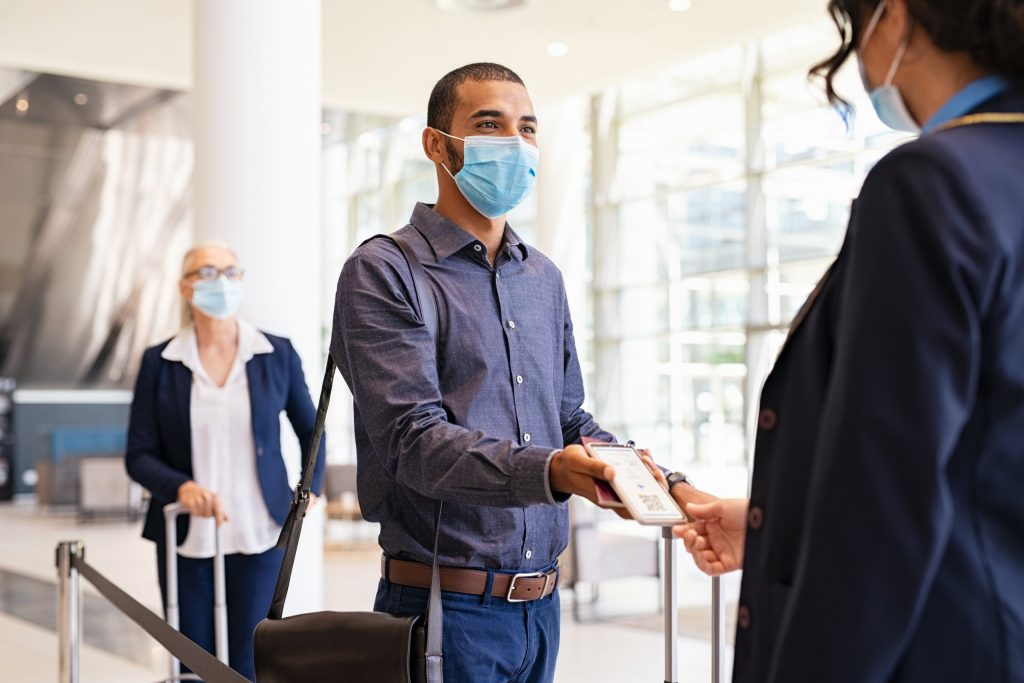
‘People could potentially go bankrupt accessing these treatments, for which there is limited to no evidence of effectiveness.’
LONDON — An experimental treatment for people dealing with long COVID may be doing more harm than good, at least from a financial perspective. Investigators with the British Medical Journal say people are spending thousands of dollars and traveling to foreign countries with the hope that “blood washing” can cure them of the lingering symptoms of COVID-19.
The technical term for the procedure is apheresis. It’s a blood-filtering treatment which doctors normally use on patients with lipid disorders who don’t respond to medication or anti-clotting therapies.
Recently, private clinics in Cyprus, Germany, and Switzerland have started offering blood washing treatments to patients with long COVID — despite little scientific evidence that the invasive procedure actually reduces COVID-related symptoms.
How does apheresis work?
‘Blood washing’ involves a needle going into each of the patient’s arms. From there, blood coming out of one vein passes through a filter that separates the red blood cells from the plasma. The procedure filters the plasma before recombining it with the blood cells and returning it to the other vein.
So, why would long COVID patients think this treatment could cure them? Study authors say there is some existing research which suggests that “microclots” in a COVID patient’s blood plasma may be what’s causing their symptoms to linger for weeks and even months. However, BMJ researchers add it’s far from certain if microclots are the true cause of long COVID, or just another symptom.
That isn’t stopping people from trying apheresis though. Investigators with The BMJ and ITV News spoke with several people who’ve tried blood washing — discovering that patients are receiving mixed results.
‘I’d have sold my house and given it away to get better, without a second thought’
Gitte Boumeester, a trainee psychiatrist in the Netherlands, had to quit her job in November 2021 due to the debilitating after-effects of her coronavirus infection. Boumeester says she found out about apheresis from a Facebook group for long COVID patients.
She spent more than $50,000 on treatments at The Long Covid Center in Cyprus before returning home with no improvement in her symptoms, according to the study. This included six rounds of apheresis, nine sessions of hyperbaric oxygen therapy, and an intravenous vitamin drip at a private clinic next door to The Long Covid Center.
Study authors add that Boumeester also had to sign a consent form, which lawyers and clinicians describe as “inadequate,” and was also asked to purchase hydroxychloroquine before her treatment began — in case of coronavirus reinfection.
“We as a clinic do neither advertise, nor promote. We accept patients that have microcirculation issues and want to be treated with HELP apheresis… If a patient needs a prescription, it is individually assessed by our doctor or the patient is referred to other specialized doctors where needed,” Marcus Klotz, co-founder of the Long Covid Center, tells The BMJ in a media release.
Conversely, Dr. Beate Jaeger, an internal medicine doctor, started treating long COVID patients with apheresis at her clinic in Germany in February 2021. Jaeger says she started working with blood washing after reading reports that COVID can cause blood clotting.
The doctor admits that apheresis is only experimental, but says scientific trials take too long to complete. According to Jaeger, her clinic treats thousands of long COVID patients, with success stories spreading on social media.
To date, there are no complaints about Jaeger filed with the North Rhine Medical Association, The BMJ reports.
Chris Witham, a businessman and long COVID patient from Great Britain spent over $8,300 on apheresis treatments and travel costs to Germany.
“I’d have sold my house and given it away to get better, without a second thought,” Witham says.
The treatment could leave some bankrupt without a cure
Although some are willing to pay anything to get rid of long COVID, some experts are fearful that apheresis can’t deliver on its promises and will leave many patients worse off than they are now.
“It’s unsurprising that people who were previously highly functioning, who are now debilitated, can’t work, can’t financially support themselves, would seek treatments elsewhere,” says the University of Birmingham’s Shamil Haroon, a clinical lecturer in primary care.
“It’s a completely rational response to a situation like this. But people could potentially go bankrupt accessing these treatments, for which there is limited to no evidence of effectiveness.”
Study authors have also found that many people are setting up GoFundMe pages to raise the funds for their apheresis treatments and associated travel costs.
There’s still no official treatment for long COVID
The World Health Organization (WHO) estimates that between 10 and 20 percent of COVID-19 patients suffer from long COVID for at least two months after their infection.
Although studies have found over 200 symptoms tied to the condition, the most common lingering symptoms include fatigue, muscle weakness, breathing and sleep difficulties, memory problems, anxiety or depression, chest pains, and loss of smell or taste.
Currently, there is no official treatment for long COVID. Until scientists work out the exact cause of the condition, experts say it’s unwise to target microclots without more knowledge.
“They [microclots] may be a biomarker for disease, but how do we know they are causal?” says Robert Ariens, a professor of vascular biology at the University of Leeds School of Medicine.
“If we don’t know the mechanisms by which the microclots form and whether or not they are causative of disease, it seems premature to design a treatment to take the microclots away, as both apheresis and triple anticoagulation are not without risks, the obvious one being bleeding.”
The report is published in The BMJ.
